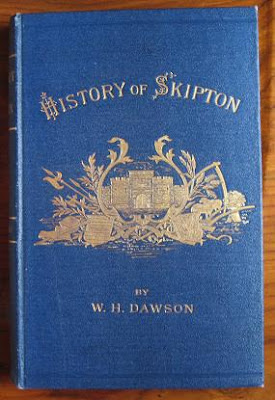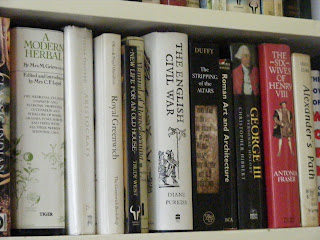 One of the rules of selling used books is that if you fancy reading one of your books in stock someone buys it. In fact the best way to get a sale is to start reading a book and get really engrossed then, about 50 pages from the end, you'll sell it.
One of the rules of selling used books is that if you fancy reading one of your books in stock someone buys it. In fact the best way to get a sale is to start reading a book and get really engrossed then, about 50 pages from the end, you'll sell it.The book in question here was neither rare nor expensive and will no doubt come my way again but I really did fancy reading A Passionate Sisterhood: The Sisters, Wives and Daughters of the Lake Poets by Kathleen Jones. Generally I am not fond of multi-person biographies, as I think reading three biographies on three inter-related people gives a more interesting picture than one book trying to turn in too many directions at once. For example the Ted Hughes - Sylvia Plath - Assia Wevill triangle is better represented by Bitter Fame by Anne Stevenson (Plath), Ted Hughes by Elaine Feinstein and A Lover of Unreason by Yehuda Koren and Eliat Negrev (Wevill), than it would be any one biography trying to deal with all three complex personalities at the same time. If you're wondering if it gets boring reading biographies of such close subjects one after the other, well actually I don't think it does. You get such a different perspective. Earlier this year I read Mrs Gaskell's Life of Charlotte Bronte and I have just finished The Infernal World of Branwell Bronte by Daphne Du Maurier. I feared it would be more of the same, but actually it throws Branwell into much sharper relief, gave me a new perspective on Charlotte and made me want to acquire a separate biography of Anne Bronte too.
Back to the book I have just sold, A Passionate Sisterhood is a look at the lives of the women of the Romantic poets: Robert Southey, William Wordsworth and Samuel Taylor Coleridge. The women are sisters, cousins, friends and in-laws: Sarah, Mary and Edith Fricker who married the friends Coleridge, Robert Lovell and Southey, Dorothy Wordsworth, Sarah and Mary Hutchinson (Mary was later Mrs Wordsworth) and the children of these relationships. The Romantics did live such interwoven lives: in and out of each other's houses (often living in the same house actually), partners in art and thought, as well as relations suffering the trials of mixed financial fortunes, drug addicted spouses and more. A combined look at the 'sisterhood' seemed such a good premise for a book. But it has gone, though no doubt to a good home, and next time I have it in stock I will get onto it quicker!
















